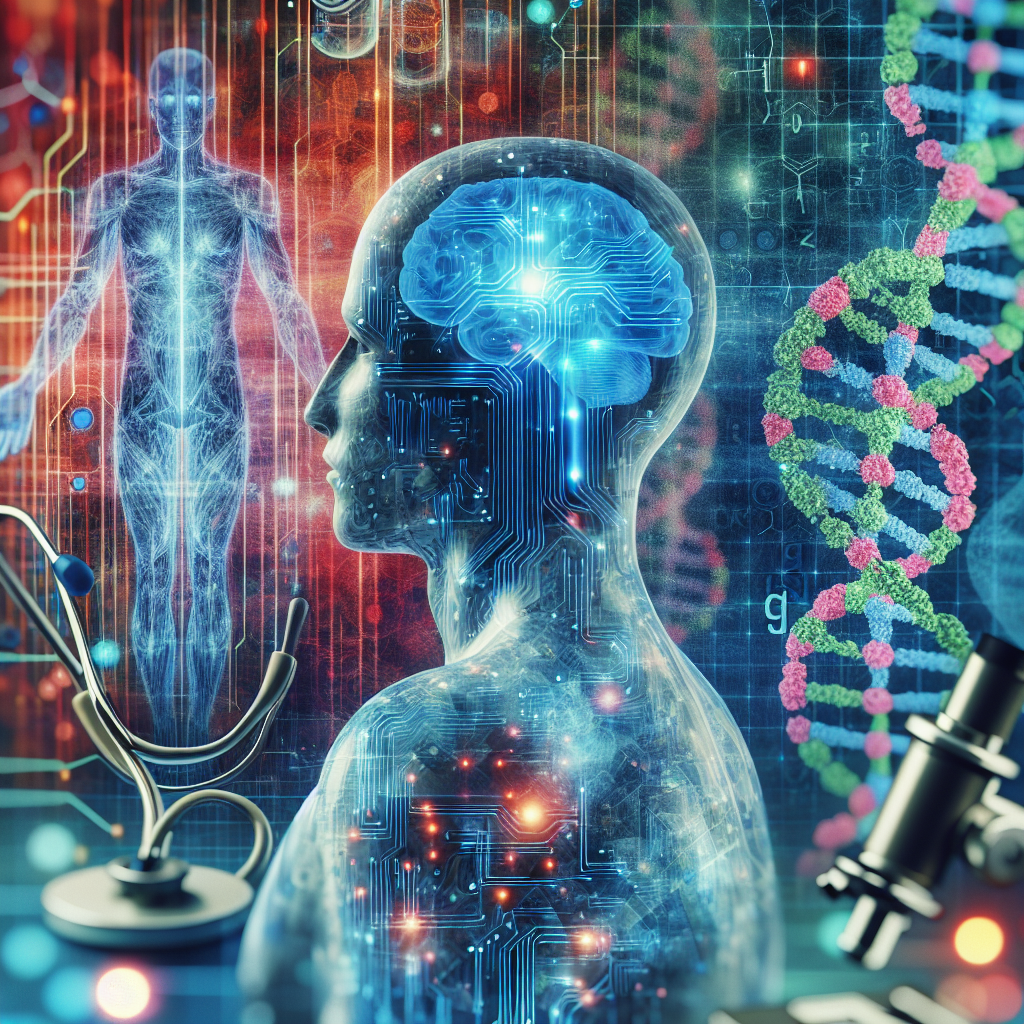The Future of AI Deployment in Precision Medicine
Precision medicine, also known as personalized medicine, is a rapidly evolving field that aims to tailor medical treatment to the individual characteristics of each patient. This approach involves the use of various technologies and data sources to understand the genetic, environmental, and lifestyle factors that influence an individual’s health and disease risk. Artificial intelligence (AI) is playing a crucial role in advancing precision medicine by enabling the analysis of large and complex datasets to identify patterns and make predictions that can guide personalized treatment decisions.
AI technologies, such as machine learning and natural language processing, have the potential to revolutionize the practice of medicine by transforming the way healthcare providers diagnose, treat, and manage diseases. The integration of AI into precision medicine workflows can help improve patient outcomes, reduce healthcare costs, and accelerate the development of new treatments and therapies. In this article, we will explore the future of AI deployment in precision medicine and discuss the potential benefits and challenges associated with this technology.
Benefits of AI Deployment in Precision Medicine
1. Improved Diagnosis and Treatment: AI algorithms can analyze vast amounts of patient data, including genetic information, medical records, and imaging studies, to identify patterns and trends that may be missed by human clinicians. This can help healthcare providers make more accurate and timely diagnoses, leading to better treatment outcomes for patients.
2. Personalized Treatment Plans: AI-powered tools can analyze individual patient data to predict how a person will respond to a specific treatment or medication. This information can help healthcare providers tailor treatment plans to each patient’s unique characteristics, maximizing the effectiveness of therapy and minimizing potential side effects.
3. Drug Discovery and Development: AI can accelerate the drug discovery process by analyzing large datasets to identify potential drug targets, predict drug interactions, and optimize drug dosing regimens. This can help pharmaceutical companies bring new treatments to market more quickly and cost-effectively.
4. Predictive Analytics: AI algorithms can predict disease progression, treatment response, and patient outcomes based on a combination of genetic, clinical, and lifestyle data. This information can help healthcare providers identify high-risk patients, intervene early, and prevent the development of chronic diseases.
Challenges of AI Deployment in Precision Medicine
1. Data Privacy and Security: AI algorithms require access to large amounts of sensitive patient data to make accurate predictions. Ensuring the privacy and security of this data is crucial to maintaining patient trust and compliance with regulatory requirements, such as the Health Insurance Portability and Accountability Act (HIPAA).
2. Interpretability and Transparency: AI algorithms are often considered “black boxes” that make decisions based on complex mathematical models that are difficult to interpret or explain. Healthcare providers must be able to understand how AI algorithms arrive at their conclusions to trust and act upon their recommendations.
3. Bias and Fairness: AI algorithms can inadvertently perpetuate existing biases and disparities in healthcare by relying on biased training data or making decisions that disproportionately impact certain patient populations. Ensuring that AI systems are fair and equitable requires careful design, validation, and monitoring.
4. Regulatory and Ethical Considerations: The use of AI in precision medicine raises important ethical and regulatory questions about patient consent, data ownership, liability, and accountability. Healthcare providers, researchers, and policymakers must work together to establish guidelines and standards for the responsible deployment of AI technologies in healthcare.
FAQs
Q: How is AI being used in precision medicine today?
A: AI is being used in precision medicine to analyze genetic data, predict disease risk, personalize treatment plans, and accelerate drug discovery and development. For example, AI-powered tools can analyze DNA sequences to identify genetic mutations associated with cancer risk or predict how a patient will respond to a specific medication.
Q: What are some examples of AI applications in precision medicine?
A: Some examples of AI applications in precision medicine include IBM Watson for Oncology, which uses AI to analyze patient data and medical literature to recommend personalized cancer treatment plans; Deep Genomics, which uses AI to identify genetic mutations linked to rare diseases and develop targeted therapies; and Tempus, which uses AI to analyze clinical and molecular data to guide cancer treatment decisions.
Q: How can healthcare providers integrate AI into their precision medicine workflows?
A: Healthcare providers can integrate AI into their precision medicine workflows by partnering with AI companies, investing in AI-enabled software tools, and training their staff to use AI technologies effectively. It is important for healthcare providers to collaborate with data scientists, bioinformaticians, and other experts to ensure the successful deployment of AI in precision medicine.
Q: What are the potential risks of using AI in precision medicine?
A: Some potential risks of using AI in precision medicine include data privacy and security concerns, interpretability and transparency issues, bias and fairness challenges, and regulatory and ethical considerations. Healthcare providers must carefully evaluate the risks and benefits of using AI technologies in their practice and take steps to mitigate potential harms.
Q: What is the future of AI deployment in precision medicine?
A: The future of AI deployment in precision medicine is promising, with continued advancements in AI algorithms, data analytics, and healthcare technologies. As AI becomes more integrated into clinical practice, we can expect to see improved diagnosis and treatment outcomes, personalized treatment plans, accelerated drug discovery and development, and enhanced predictive analytics for disease prevention and management.
In conclusion, AI deployment in precision medicine has the potential to revolutionize the practice of medicine by enabling personalized treatment plans, accelerating drug discovery and development, and improving patient outcomes. While there are challenges and risks associated with the use of AI in healthcare, careful planning, collaboration, and oversight can help healthcare providers harness the full potential of AI technologies to benefit patients and society as a whole. The future of AI deployment in precision medicine is bright, and we can expect to see continued advancements in this field in the years to come.

